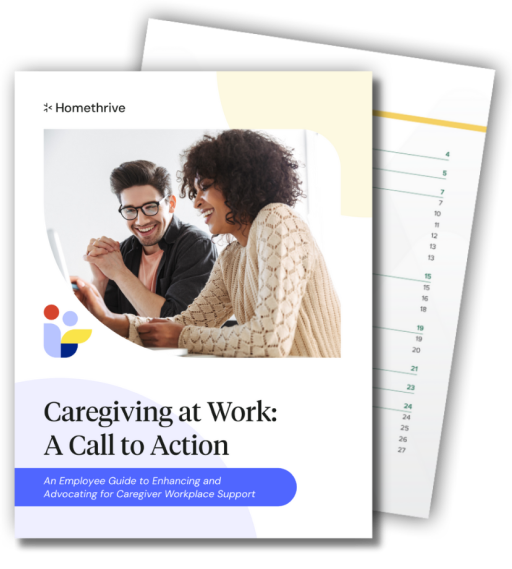It is estimated that 53 million adults in the United States provide unpaid care to senior or disabled family members, and the number continues to grow with the aging population. There are currently caregivers from every culture in the U.S., and how they are supported and to what extent can differ based on demographic. With more challenges to contend with depending on a caregiver’s language and culture, providing the right support for your employees is crucial for maintaining a diverse workforce.
Caregiving Breakdown and Challenges
According to Family Caregiver Association, the breakdown of family caregivers within each demographic the U.S. is as follows:
- 21% Hispanic (non-white, non-African-American)
- African-American: 20.3%
- Asian-American: 19.7%
- White: 16.9%
[National Alliance for Caregiving and AARP. (2015). Caregiving in the U.S.]
Additionally, one in four LGBTQ+ people identify as a caregiver. LGBTQ+ caregivers face distinct challenges caring for partners, friends, and aging family members. Among these challenges are legal restrictions, discrimination from institutions and providers, and lack of support for chosen families.
Why Is the Diversity of Caregivers Important?
As in all aspects of life, diversity adds a rich layer of cultural perspectives and experiences. The experiences and health trajectories of caregivers and seniors in their care often vary based on culture.
For example, according to the American Psychological Association (APA):
- Asian-American caregivers made less use of professional support services than white caregivers.
- Ethnic minority caregivers had a lower socioeconomic status, were more likely to receive support from family members and friends, provided more care than white caregivers, and had stronger filial obligation beliefs than white caregivers.
- All ethnic minority caregiving groups reported worse physical health than the white caregivers experienced.
- African-American caregivers had lower levels of caregiver burden and depression than white caregivers. Hispanic and Asian-American caregivers were more depressed than white caregivers.
Understanding that caregivers come from various backgrounds and have different needs, expectations, and challenges can help employers and the medical community provide better benefits, support, and information.
The Importance of Cultural Competency
Effective communication between caregivers, care recipients, and healthcare professionals ensures the best possible care. Language barriers and cultural differences can create challenges in communication. However, caregivers from different backgrounds often have unique cultural knowledge that can inform healthcare decisions and enhance a patient’s quality of life. Caregivers can provide medical staff with an understanding of cultural beliefs, traditions, and practices necessary for providing adequate care.
How to Support a Diverse Caregiving Population
Recognizing the unique needs of culturally diverse family caregivers is essential for providing comprehensive support. Resources needed include the following.
Culturally Sensitive Resources
Caregivers may require access to culturally sensitive resources, such as educational materials in their native language, support groups relevant to them, and healthcare providers who understand their background.
Language Access
Language barriers can be a significant hurdle. Providing interpreters or translation services ensures caregivers can communicate effectively with healthcare professionals and successfully navigate the healthcare system. Alternatively, experts like Homethrive Care Guides can assist with appointment booking and answering questions.
Cultural Training for Healthcare Professionals
Healthcare professionals should receive cultural competency training to understand and support diverse caregivers. This includes being aware of cultural norms, traditions, and healthcare preferences.
Respite Care
Caregivers often experience burnout due to the demands of their role. Access to respite care services, where trained individuals can step in temporarily to provide care, is crucial for all caregivers. But for those from diverse backgrounds, it’s essential to provide respite care that is also culturally sensitive. For example, some religious families may need respite caregivers familiar with Sabbath observance rules. Other seniors may simply prefer caregivers who can provide familiar foods.
Financial Support
Caregiving can be financially burdensome, which may be exacerbated for caregivers from underserved communities. Financial stress can greatly impact their productivity and well-being. To maintain a diverse workforce, employers should know the importance of caregiving benefits.
Benefits like Homethrive support caregivers by providing accessible assistance and information at no cost to your employee, saving hours of work time each week and alleviating stress. Homethrive can connect employees with relevant government and community assistance programs, as well as help them understand insurance coverage and benefits that can help them save money on their loved one’s care.
The diversity among family caregivers emphasizes the importance of cultural competency and the value of diverse emotional support networks. Recognizing and supporting the unique needs of diverse caregivers is essential for fostering an inclusive and equitable healthcare system. All family caregivers need access to resources and support to provide the best possible care to their loved ones while maintaining their well-being.
Find out more ways to support your caregiving employees by learning about the benefits that can help.
To receive caregiving benefit insights delivered straight to your inbox, sign up for our weekly newsletter.







